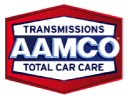Should You Repair or Buy New?
How does the actual cost of purchasing a new vehicle compare with having your vehicle expertly repaired? Find out now!
Does your vehicle require a transmission or other major repair? This is usually when the question “Should I bother with the repair or just buy a new vehicle?” comes up. If you think a new vehicle will be a better, cheaper solution, you may want to think again. It's important to understand the true costs of buying a new or used vehicle before going down that path. Repairing and maintaining your current vehicle often makes more sense and will save you more money.
IT'S BETTER TO REPAIR AND MAINTAIN THAN BUY NEW
It is almost always more economical to repair and maintain your current vehicle than to buy a new one.
Here's why:
1. The Market Has Drastically Changed Since COVID
COVID has created all sorts of havoc since it began, but one industry that continues to see profound impacts is the automotive industry.
- Skyrocketing Prices
Limited inventory and high demand translate into serious sticker shock. In 2019, the price Americans paid for a new car increased by an average of $1,799 and grew by a record-breaking $6,220 in 2021. This left consumers with an average price of over $47,000 for a new car!
- Supply Chain Issues
This seismic shift in pricing is powered by inventory issues due to the worldwide chip shortage. Chip manufacturing companies shut down for the health and safety of their workers in 2020 and experienced diminished workforces due to an increase in COVID cases during the 2nd and 3rd waves.
- Reluctance to Give Discounts or Negotiate
Dealerships are less willing to give discounts or other incentives since inventory is low and demand remains high. Many dealerships continue to sell vehicles above the MSRP, a practice almost unheard of before COVID. 82% of consumers are paying beyond sticker price for new vehicles, according to Edmunds.com. That compares with 2.8% in 2021 and 0.3% in 2020.
2. Depreciation
Vehicles are not investments; they are valuable assets, which is a noteworthy distinction when considering their true cost. Conventional wisdom states new vehicles lose the most value during the first year they are owned. By five years, vehicles lose about 40% of their worth, depending on their model, condition, and mileage.
3. Higher Monthly Payments
Monthly payments will be higher than usual, especially in the current market. Even used vehicles have substantially increased in price. Vehicle payments gnawing away at your bank account for years on end compared to a short-term payment plan for a repair is a far cheaper and more financially viable option.
4. Higher Insurance and Other Hidden Costs
New cars demand higher monthly insurance costs across the board. Unless you’re paying cash, financing a vehicle comes with interest payments, and the downpayment is 20%. A $26,000 car would have a downpayment of $5,200, which is higher than the typical cost of a large repair.
New vehicle buyers may also experience sticker shock on items like local sales tax, vehicle registration, DMV fees, and dealer documentation fees. 46 out of 50 American states charge sales tax on the purchase of a new vehicle. Twelve states have a new car tax rate of over 10%, meaning sales tax can add more than $4,700 to the 2021 average new car sale price of $47,000! Registration and documentation fees are nominal in most states, e.g., $86 and $75 each in New York state, but can add up fast in other places like Delaware and Georgia, which have average vehicle registration costs of $1,553 and $2,465 respectively, according to Edmunds.com.
5. Your Trade-In Value Will Include the Cost of Repairs
If you have a pricey repair you don’t want to pay for, you will still have to “pay” for it when trading in your car. The difference between trade-in values of a used vehicle listed in "Good Condition” versus one in "Poor Condition” (like in the case of a major repair, such as a new transmission) is difficult to accurately calculate without an appraisal. During an appraisal, a dealer's service manager will estimate the cost of replacing the expensive component, including parts and labor, to move the vehicle into the "Good Condition" category. That cost is deducted from the value of the trade-in. In other words, you'll pay for the transmission repair cost no matter what.
6. Your Current Vehicle Is a Valuable Asset!
The best part about the current market is that your current vehicle has more retained value now.
According to the Bureau of Labor Statistics, the same trend we see in new vehicles is true for the used car market—the average price of a used vehicle increased by 37% between December 2020 and December 2021.
AAMCO is Here to Help With Expert Advice & Repair
In 9 out of 10 instances, it is less expensive to repair your vehicle than to replace your vehicle altogether for the reasons listed above. Significant repairs involving the engine or transmission are often in the few thousand dollar range. This price is still lower than most deposits on a new car. Additionally, high vehicle prices with hefty deposits, ongoing monthly payments, and higher insurance rates eating away at your account each month make repairing and maintaining your vehicle cheaper.
At AAMCO, we work with our customers to successfully budget large repairs through affordable pricing, convenient and flexible payment plans, and a nationwide warranty. Taken together, the savings from keeping your current vehicle with an AAMCO guaranteed repair will easily outweigh the costs of buying new.
